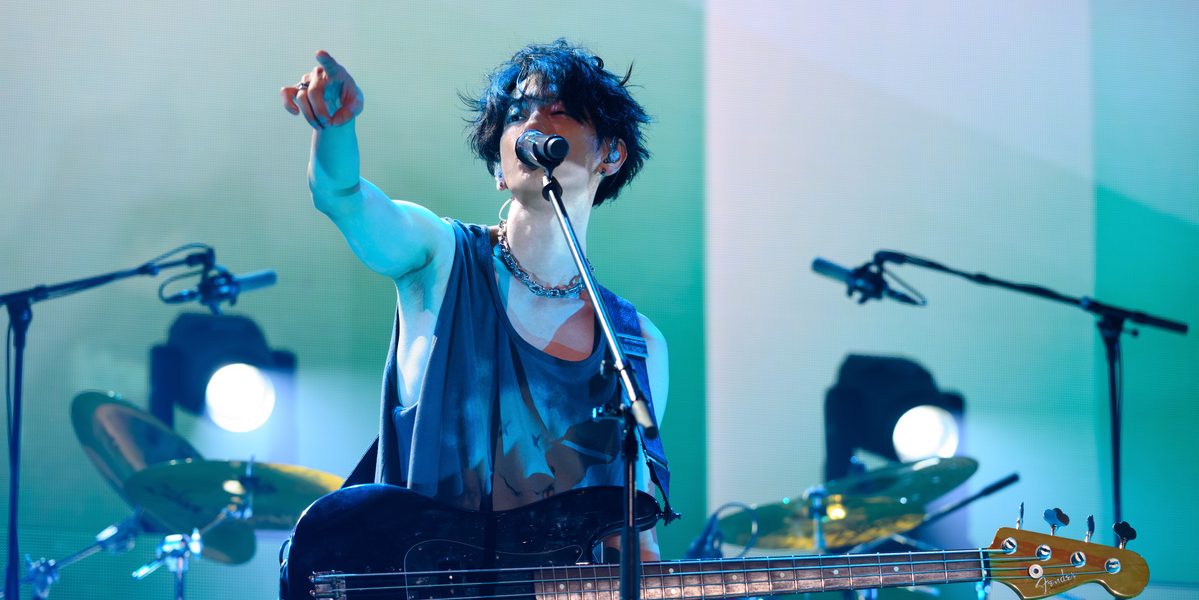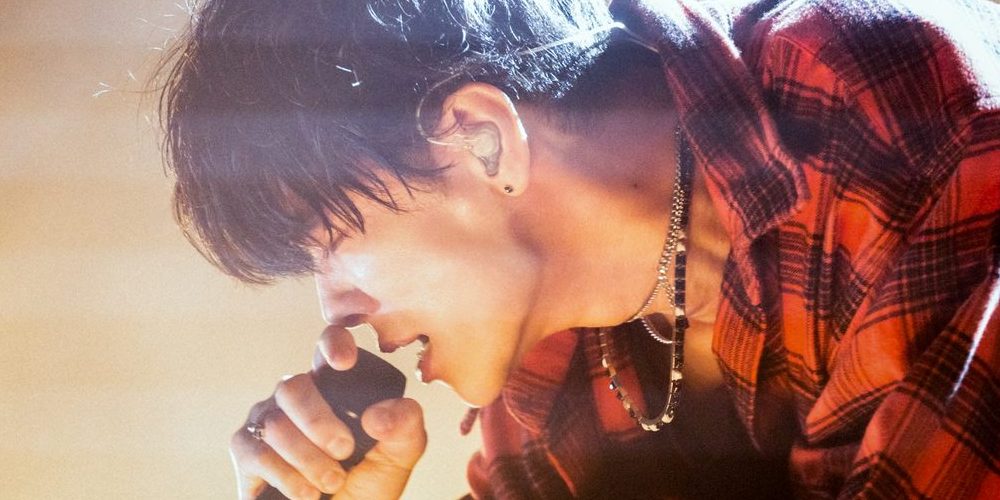Netflix’s Japanese-language musical drama series ‘Glass Heart’ follows two individuals with broken hearts as they strive to make something valuable out of their lives through music. It chronicles the journey of Akane Saijo (Yu Miyazaki), a young college student who aspires to be a professional drummer. However, her dreams come crashing down when she is ousted from her band. As the show gets canceled because of bad weather, Akane makes the parking lot her stage and performs for the public. A few moments later, someone joins her performance with melodious tunes on a piano, which makes her realize how much she loves music. When she feels her dream is about to end, one specific order at her mother’s restaurant changes everything. She unexpectedly meets Naoki Fujitani (Takeru Satoh), who wants her to be a part of his band, TENBLANK.
As the story progresses, it becomes evident that Naoki doesn’t want to waste any time and make the band famous. While Akane and other members of the band – Sho Takaoka (Keita Machida) and Kazushi Sakamoto (Jun Shison) – try to adjust their tunes to Naoki’s musical genius, Naoki’s carefully guarded secrets begin to unravel. What starts as a tale of shared dreams slowly transforms into an impassioned story about hidden scars and the cost of chasing greatness. Apart from showing details about the Japanese music industry, the production gives an introspective look at how things have changed in the global music scene. By showing this aspect, ‘Glass Heart’ tells the viewers that behind every hit composition lies a world of personal battles that shape the very soul of the music today, making the narrative richer.
Glass Heart is a Melodious Adaptation of a Novel by Wakagi Mio
To answer the question: No, ‘Glass Heart’ is not based on a true story, and everything shown in the series is fictional. However, it is based on the novel of the same name by Wakagi Mio, which was first published in 1993 in the magazine Cobalt. Since then, five more volumes of ‘Glass Heart’ have been released; the last one came out in 2011. It is considered one of his popular writings and has inspired many people. One such inspired person is Takeru Satoh, who plays the role of Naoki Fujitani in the Netflix production and is instrumental in bringing the book to life.

Speaking in an interview with Gentosha Comics, Satoh noted that he started thinking about adapting the novel in 2019 and met the author, Wakagi Mio, before they started filming the live-action adaptation. During the conversation, the actor noted that he felt “nervous” while meeting the writer because there were parts of the story that needed to be changed for the show, and it was not easy for him to communicate that to the original author.
Thankfully, Wakagi understood what Satoh, who also serves as a producer on the series, wanted to achieve with the project and gave a thumbs-up to all the changes. He said, “He surprisingly gave the OK without any hesitation, saying, ‘If Sato-san is going to do it, I think that would be better.’ It’s an incredible amount of generosity (laughs). Normally, in cases like this, you would take the idea home and consider it. But the professor didn’t even take it home. He made an immediate decision on the spot. I was so happy to see how flexible he was.” His recognition meant the world to Satoh and motivated him to work hard and deliver something that keeps the source material’s essence and provides viewers with wholesome entertainment.
Glass Heart Captures the Raw Energy of Live Performances
While ‘Glass Heart’ is largely about TENBLANK trying to make a name for themselves, it also explores the raw energy of live performances with authenticity. The title doesn’t just feature the music; it immerses viewers in the nerves and adrenaline that pulse through each stage appearance. In today’s world, a musician or a musical group can’t stay away from tours and constant fan engagement, as live shows have become the norm in the music industry and tend to build a connection between the musician and the fans. The production tends to feature several live performances that capture the magic of the connection between the band’s music and the audience. However, it was not easy for the cast and crew to conceptualize those sequences.

Speaking in an interview, Satoh opened up about filming those live sequences and how it became one of the most challenging aspects of the shoot. To make the performances look authentic, the cast and crew had to deliver presentations that felt both emotionally resonant and technically sound. The actor noted, “Naturally, the most important thing is the persuasiveness of the live performance scenes. Readers can enjoy a novel while imagining their own sound. That’s what makes ‘Glass Heart’ so interesting as a novel. But if it’s going to be made into a film, it has to come up with a clear answer. Fans might have a different image of what they were like. Even if non-fans watch it, they might be disappointed to find that the sound of these guys who had boasted so much is only this good. Exceeding those expectations was the biggest hurdle.”
Live performances not only connect the bands with their fans, but they also generate a lot of revenue, and that’s why the live music industry has become such a huge thing in recent history. According to a report by Live Nation, concert revenue reached $34.5 billion in 2023, which marked a 29% increase from 2022. By showing the energetic live performances in this musical tale, ‘Glass Heart’ manages to showcase how big that market is, and it not only makes the artists popular but also makes them earn a lot of money, as most of the earnings from live performances go to the artists. Even though it features crucial aspects of the music industry, it takes creative liberties to enhance the viewing experience. Therefore, ‘Glass Heart’ remains a faithful adaptation of Wakagi Mio’s novel, with some crucial changes in the storyline.
Read More: Where is Netflix’s Glass Heart Filmed?


